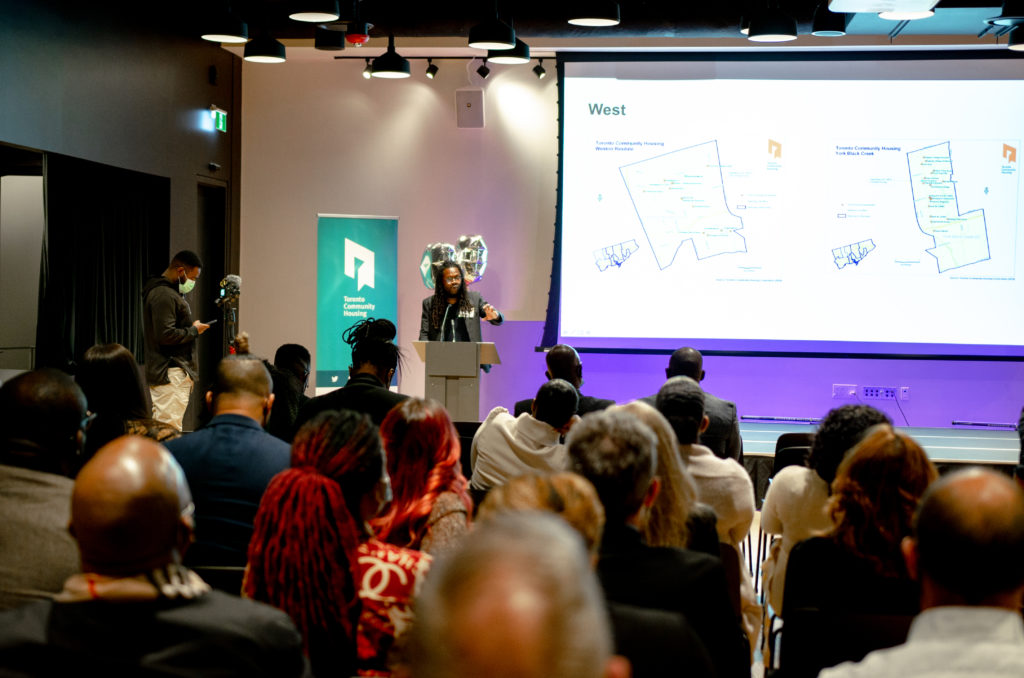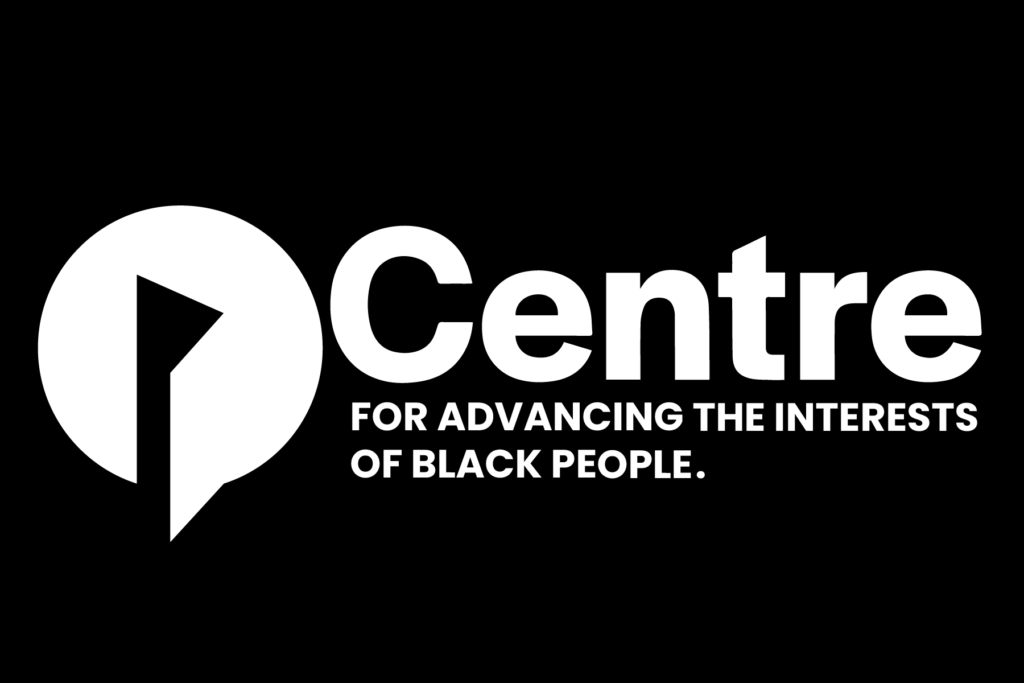Confronting Black Problems: An Interdisciplinary Approach
By Shaquille Morgan, Policy Planning and Coaching Consultant; and, Evelyn Amponsah, Centre Director, at The Centre for Advancing the Interests of Black People
In 2021, Toronto Community Housing (TCHC) launched the Centre for Advancing the Interests for Black People (also known as “The Centre”), a division established to increase TCHC’s capacity to tackle issues of anti-Black racism (ABR) that impact Black tenants and staff. The Centre’s strategy is to imbed an ABR lens into all aspects of TCHC, guided by a deep historical understanding of ABR, which continues to shape the present lives and experiences of Black people.
Watch the video to see the launch and keep reading to learn more about the issues the Centre is addressing and its plan to create positive change.
What does anti-Blackness look like in 2022?
Well, in 2022, consider that anti-Blackness resembles a 23 percent dropout rate for Black students compared to 11 percent for White students.
Consider that Black people in Ontario are four times more likely to be racially profiled and are subject to greater levels of non-lethal and lethal uses of force.
Further, consider that anti-Blackness continues to present barriers to meaningful employment, healthcare, and specifically affordable housing.
These statistics are not new. In fact, they replicate anti-Blackness of the 1990s when Black Canadians faced similar challenges and were silenced. This is eerily similar to the 1960s where these exact problems were pervasive and inequality was rife.
The present-day experience of Black Canadians also reminds us of the 1800s where anti-Blackness confined the Black experience to one of subjugation and docility. In saying this, we would be remiss to act as if the conditions for Black people have not improved and are categorized by suffering and oppression.

We acknowledge that the Black experience is diverse and dynamic, and changes form through time and across geographical boundaries. Our intention is not to reduce Black experiences to one of suffering and injustice.
We write to illuminate the historical patterns that allow us to think through the anti-Blackness that has disrupted the overall wellbeing of Black Canadians.
Historical and lasting significance of 1441
This historical pattern can be traced to one year: 1441.
The year 1441 marked the arrival of the Portuguese on the West African coast to set up trading posts to facilitate the trade of captive Africans, signifying a moment in time when Black people were first objectified.
In 2022, 1441 may seem like—and indeed is—a distant past. But the reality is that our present conditions emerge directly out of 1441, being that it marks the genesis of anti-Blackness. Although 1441 represents a significant turning point in relation to anti-Blackness, our contemporary assessments of anti-Blackness remain disconnected from this moment—an event that marked the denigration of Blackness.
This year remains relevant as 1441 did not stay in 1441; in fact, the denigration of Blackness that emerged from this moment has impacted all areas and periods of life.
Tackling “wicked problems”
Considering that the same challenges related to anti-Blackness have re-materialized over time (i.e., the re-materialization of 1441), what becomes evident is that conventional solutions that target these challenges in isolation have consistently failed; and they have failed because these systemic barriers towards Black people are wicked problems.
In policy, wicked problems are defined as issues with myriad interconnected factors that are often in flux and difficult to define, making them seem impossible to solve.
The current housing crisis is an example of a wicked problem. Although decent and fair housing is considered a fundamental human right, this directly contradicts the reality. The inflated cost of housing in Toronto has caused a divide where this basic human right is not equally available to all, disproportionately affecting Black and other low-income communities.
Along with this contradiction is the way education, meaningful employment, healthcare, the justice system, and food systems also influence the ability of Black people to secure housing and live healthy lives. Therefore, to effectively address the Black housing experience means simultaneously navigating and negotiating these systems.
1441 has defined and redefined all aspects of the Black experience, thus creating and re-creating Black problems. To effectively address these problems an interdisciplinary approach—one that departs from conventional solutions—is needed.
Why? An interdisciplinary approach allows us concurrently to consider the most pervasive challenges, synthesizing multiple approaches, perspectives, and impacts.
An 8-point plan to confront anti-Black racism

The Centre’s intervention aims to utilize an interdisciplinary approach to better serve Black tenants and staff, who have consistently had to navigate multiple systems of oppression.
As such, our approach to identify and address these systems must be the same. Out of this understanding comes the Confronting Anti-Black Racism (CABR) Strategy and its 8-point plan, a unique approach to confront ABR:
- Decent and fair housing
- Meaningful economic investment
- Healthy children, youth and families
- Access to culturally responsive health and mental health services
- Community centered safety
- Divesting from police culture
- Uplifting social support networks
- Addressing anti-Black racism and cultural redress
The CABR strategy acknowledges that each point cannot individually change the lives of Black people, but to be successful, we must effectively address each point concurrently. With this strategy, we hope to positively impact the lives and experiences of Black tenants and staff.
While still in the early stages, and with a lot of work to do, we cannot predict how the impact this approach will have. But what we can say is that understanding the perpetual influence of 1441, and the failure of conventional methods, we are positioned to create change, and better the outcomes committed to changing Black lives.

Toronto Community Housing is the largest social housing provider in Canada, and the second largest in North America. The Centre for Advancing the Interests of Black People is a stand-alone division at Toronto Community Housing, created to lead the organization in implementing the confronting anti-Black racism strategy.
Photos and video courtesy of the Toronto Community Housing Corporation




